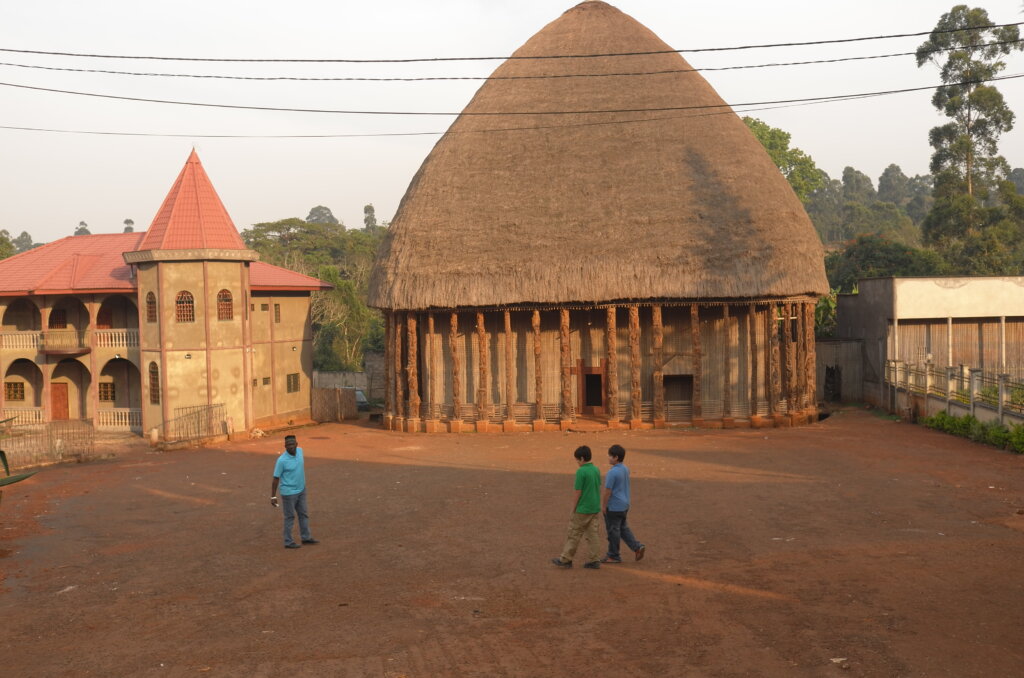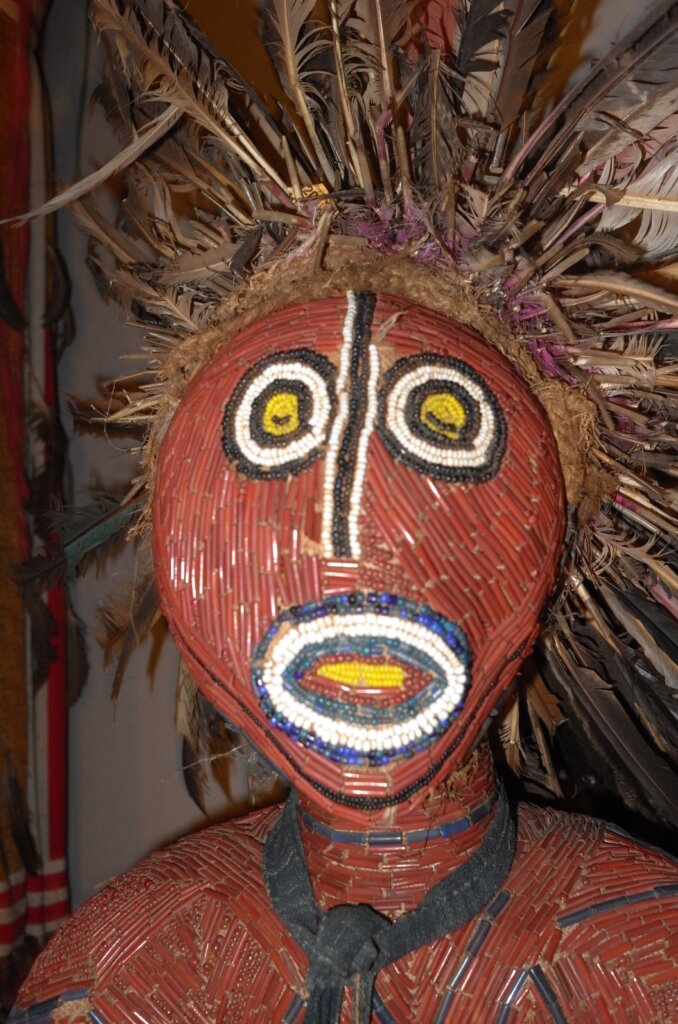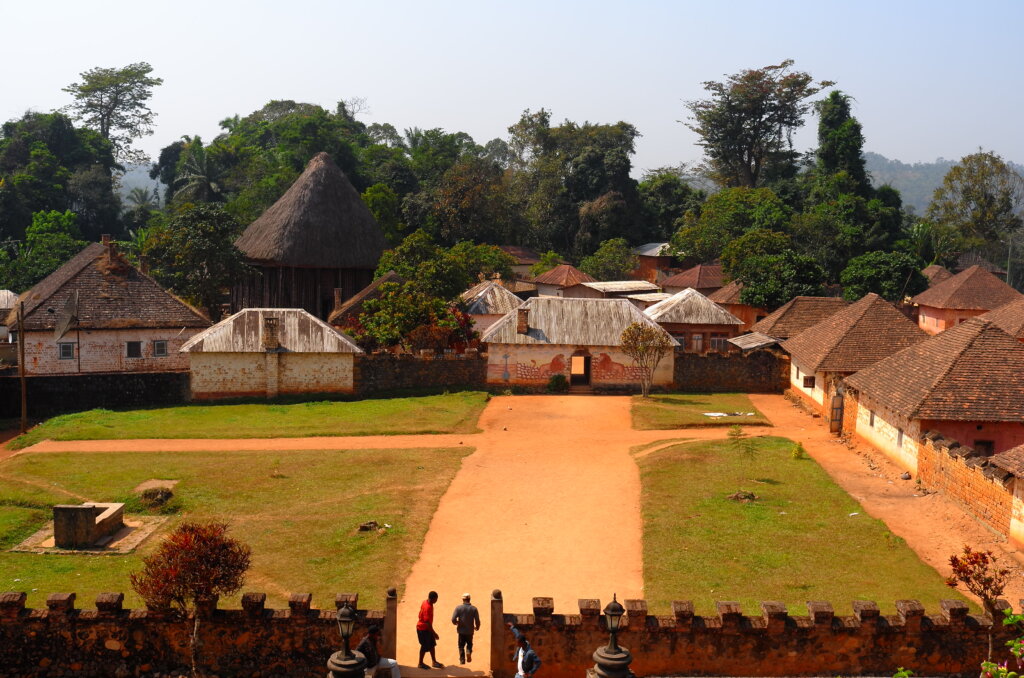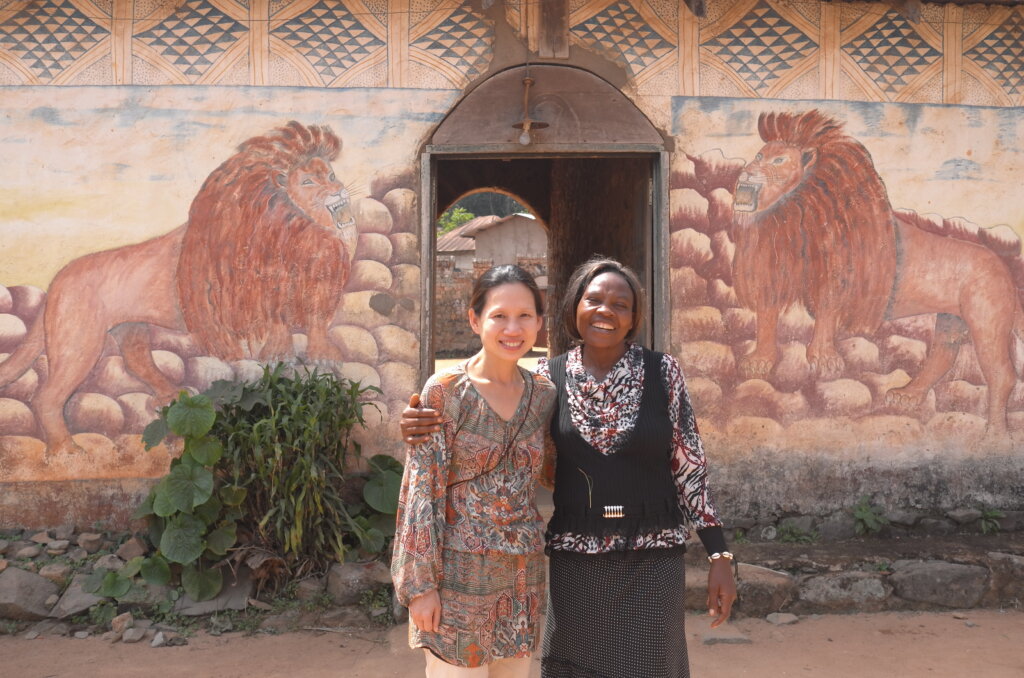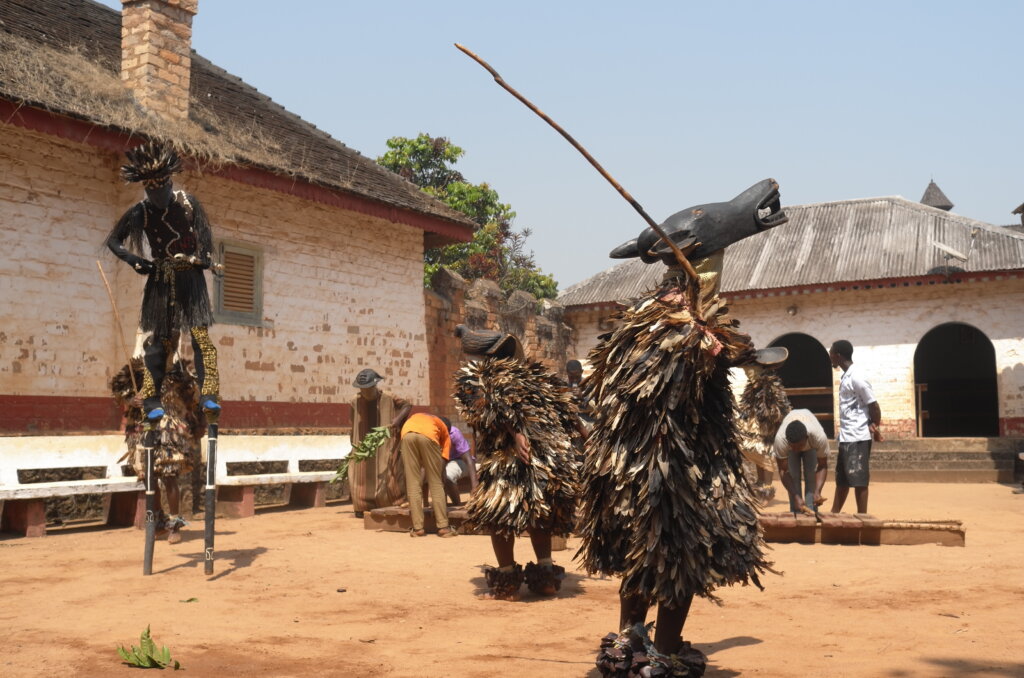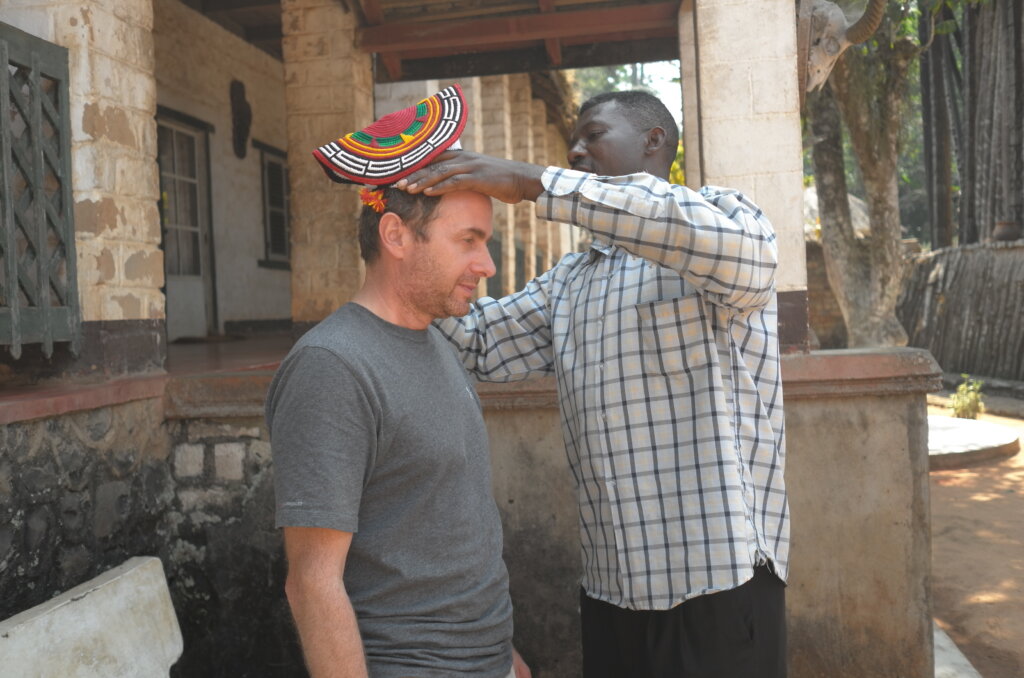Traditional chiefs, or kings (called “fon” here), are an integral part of the political organization of the country. Officially functioning as auxiliaries of the central government, they are often the only face of the authorities which people in the countryside are exposed to. The more effective kings are true figures of authority for their people, more influential and respected than the remote central government in Yaounde.
We visit several palaces in the western highlands, where we travel for a few days, and get fascinating insights into sophisticated cultures.
The Bamoun kingdom, founded 600 years ago and whose current sultan is the 19th in the dynasty, is one of the most revered in the country. The 17th sultan, Ibrahim Njoya, initiated Meiji-like reforms for the kingdom in the 1920’s at a time when the French colonial administration was trying to defang the fon-doms.
He created one of sub-saharan Africa’s first written scripts, to counter the introduction of the latin alphabet. Made up initially of 530 pictograms, it evolved to become an 80 letter alphabet. He set up printing presses to spread the use of the new writing system through books, used in newly opened local schools. He introduced modern agriculture and adopted western architectural styles which he blended with local traditional styles. Ibrahim Njoya was exiled by the French when he proved too successful – and before he was able to complete his African “Meiji restoration”.
We also visit the palace of one of the great kingdoms of Cameroon, Bafut, in the Bamenda area of the northwest highlands. One of the king’s eight wives, Queen Constance, shows us around. An articulate and charismatic personality, she gives us a behind the scenes view into the role of traditional chiefs. She touches on the creeping centralization which the government in Yaounde is trying to impose, to delegitimize traditional chiefs. More than 50 years after independence, politics in Africa remains resolutely local and tribal, with most people’s main allegiance being to their traditional leaders. The extreme example of this being the Ashanti king in Ghana whose power and influence rivals that of the elected government.
